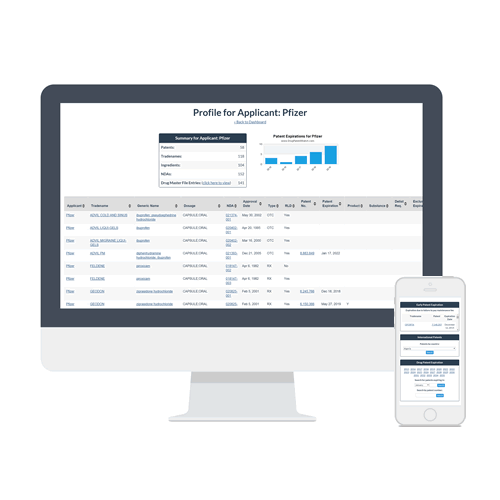
The integration of artificial intelligence (AI) into drug discovery and development is revolutionizing the pharmaceutical industry. AI’s ability to analyze vast datasets, predict molecular structures, and optimize clinical trials is accelerating the pace of innovation. However, this technological leap brings with it complex legal challenges, particularly in the realm of intellectual property (IP). This article delves into the intricacies of patenting AI-developed drugs, exploring the current state of the law, industry perspectives, and future directions.
Table of Contents
The Role of AI in Drug Discovery
AI’s transformative potential in drug discovery is undeniable. Machine learning algorithms can sift through massive datasets to identify potential drug candidates, predict their efficacy, and even suggest modifications to enhance their properties. For instance, Google’s DeepMind developed AlphaFold2, which accurately predicted the 3D structures of over 200 million proteins, a feat that would have taken traditional methods years to accomplish[3].
“AI is poised to revolutionize drug development by streamlining processes and reducing costs,” says Daniel Lee, an expert in AI and pharmaceuticals[2]. “However, the legal framework surrounding AI-generated inventions is still evolving, posing significant challenges for patenting these innovations.”
Patent Eligibility and Inventorship
One of the primary legal challenges in patenting AI-developed drugs is determining inventorship. The U.S. Patent and Trademark Office (USPTO) has made it clear that AI cannot be listed as an inventor. Instead, a human must make a “significant contribution” to the inventive process for a patent to be granted[3][4]. This raises questions about the extent of human involvement required when AI plays a substantial role in drug discovery.
“Using an AI tool, by itself, does not make an invention unpatentable,” explains Michael Kahn, a partner at Akin’s IP practice. “However, the human’s role in the inventive process must be significant, such as designing experiments based on AI outputs or training the AI tool to solve specific problems”[3].
Challenges in Patentability
The patentability of AI-developed drugs is further complicated by the nature of AI itself. AI systems often operate as “black boxes,” making it difficult to explain how they arrive at certain conclusions. This lack of transparency can pose challenges in meeting the disclosure requirements for patent applications.
“AI’s generative capabilities can blur the lines between human and machine contributions,” notes Ryan Dowell, counsel at Akin’s IP practice. “This necessitates a careful balance between leveraging AI’s potential and adhering to patent laws”[3].
Case Studies and Industry Examples
Several AI-driven platforms have already made significant strides in drug discovery. IBM’s Watson, for example, has been used to analyze patient data and suggest treatment strategies for cancer, demonstrating AI’s potential in personalized medicine[1]. Similarly, AI startup companies in the drug development sector generated approximately $2.1 billion in the first half of 2021 alone, highlighting the growing market for AI-driven pharmaceutical innovations[4].
Pullquote
“AI is poised to revolutionize drug development by streamlining processes and reducing costs. However, the legal framework surrounding AI-generated inventions is still evolving, posing significant challenges for patenting these innovations.” — Daniel Lee, AI and Pharmaceuticals Expert
Future Directions and Legal Considerations
As AI continues to advance, the legal landscape must adapt to address the unique challenges it presents. The USPTO’s recent guidance on AI-assisted inventions is a step in the right direction, but further clarity is needed. For instance, the USPTO has been directed to publish additional guidance on the patent eligibility of AI innovations by July 2024[3][4].
“Striking a balance between harnessing AI’s capabilities and adhering to patent laws requires proactive strategies,” says Kahn. “This includes clarifying the boundaries of patent-eligible subject matter and addressing the nuances of inventorship in an AI-integrated landscape”[3].
Conclusion
The integration of AI into drug discovery is transforming the pharmaceutical industry, offering unprecedented opportunities for innovation. However, the legal challenges associated with patenting AI-developed drugs are complex and multifaceted. As the industry continues to evolve, a harmonious blend of technological prowess and legal acumen will be pivotal in driving pharmaceutical innovation while safeguarding intellectual property rights.
Cited Sources
- Artificial intelligence in drug discovery and development – PMC – NCBI
- Artificial Intelligence in Drug Development: Patent Considerations – IPWatchdog
- Patentability and predictability in AI-assisted drug discovery – Akin Gump
- Why AI Developed Drugs May Not Develop Into Patents – American Bar Association
- Intellectual Property Considerations for Drug Discovery Via Artificial Intelligence – Pharmaceutical Executive
By addressing these challenges head-on, the pharmaceutical industry can fully leverage AI’s potential, ensuring that groundbreaking innovations are protected and brought to market efficiently.
Citations:
[1] https://www.ncbi.nlm.nih.gov/pmc/articles/PMC7577280/
[2] https://ipwatchdog.com/2023/09/25/artificial-intelligence-drug-development-patent-considerations/id=167125/
[3] https://www.akingump.com/a/web/kAJxgkjHh1XoyABdxDtAf1/8MiCMH/patentability-and-predictability-in-ai-assisted-drug-discovery-web-v3.pdf
[4] https://www.americanbar.org/groups/health_law/publications/aba_health_esource/2023-2024/april-2024/why-ai-developed-drugs-may-not-develop-into-patents/
[5] https://www.pharmexec.com/view/intellectual-property-considerations-drug-discovery-artificial-intelligence
[6] https://www.fenwick.com/insights/publications/emerging-legal-terrain-ip-risks-from-ais-role-in-drug-discovery
[7] https://www.carpmaels.com/patenting-ai-artificial-intelligence-and-drug-discovery/
[8] https://www.ncbi.nlm.nih.gov/pmc/articles/PMC7366817/
[9] https://vial.com/blog/articles/what-ai-designed-drugs-have-been-fda-approved/
[10] https://scholarlycommons.law.northwestern.edu/cgi/viewcontent.cgi?article=1339&context=njtip
[11] https://www.law.com/2024/05/08/emerging-legal-terrain-ip-risks-from-ais-role-in-drug-discovery/?slreturn=20240421184939
[12] https://news.bloomberglaw.com/ip-law/ai-helps-pharma-find-new-drugs-but-imperils-lucrative-patents
[13] https://papers.ssrn.com/sol3/papers.cfm?abstract_id=4566014
[14] https://www.fenwick.com/insights/publications/unpacking-ai-assisted-drug-discovery-patents
[15] https://blog.petrieflom.law.harvard.edu/2023/03/20/how-artificial-intelligence-is-revolutionizing-drug-discovery/
[16] https://digitalcommons.law.uga.edu/cgi/viewcontent.cgi?article=1500&context=jipl
[17] https://www.technologyreview.com/2024/03/20/1089939/a-wave-of-drugs-dreamed-up-by-ai-is-on-its-way/
[18] https://www.ncbi.nlm.nih.gov/pmc/articles/PMC10385763/
[19] https://www.nature.com/articles/s41587-023-02029-7
[20] https://www.cas.org/resources/cas-insights/drug-discovery/ai-designed-drug-candidates


